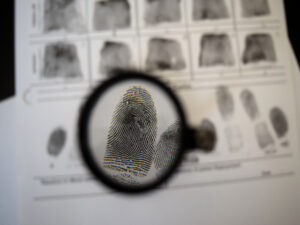Yes, we can help!
In a perfect world we wouldn’t need defense advocacy. Fingerprint experts would focus on the evidence and would be able to offer opinions that are supported by the evidence. Unfortunately, this is not a perfect world.
In this day and age it is common to see people who are purported fingerprint or “friction ridge” experts overstating their evidence. Their analysis is often flawed and the limitations of the evidence are seldom illustrated even if the issue is obvious to a lay person. This is why defense advocacy is so important. You need the complete picture of the evidence if you are going to attempt to to mitigate it.
There are many other reasons to bring a fingerprint expert into your case.
In Canada, fingerprint evidence in criminal trials has been thought to be iron-clad for a very long time. On many occasions, the Courts have allowed poor practitioners to push through weak evidence, neither of which would be accepted if the flaws and limitations were properly illustrated. Unfortunately, in many cases, the questions counsel should be asking are overlooked and subsequently the testimony of the Crown’s witness is waived and accepted prima facie.

There are typically three compelling reasons why you may want to question the friction ridge evidence you face.
So, what other conditions make hiring a fingerprint expert worthwhile?
There are many other reasons. In recent times we have seen a significant reduction in skills, knowledge, and abilities of forensic practitioners. The reasons can be attributed to high staff turnover, slashed training budgets, curriculum reductions at the training facilities and the loss of mentors within forensic identification units to mention a few. These conditions have resulted in the erosion of a once strong forensic identification landscape in Canada. Unfortunately, the people currently responsible for this work are doing so with far less support than was once required and their capability is limited for the most part to convincing evidence.
Now, more than ever we need to scrutinize the work, the decisions, and the processes used to implicate people through fingerprints and palm prints. Now more than ever, you need the insight and the expertise to expose the cracks and the flaws that would otherwise remain hidden to the detriment of your client.
To be fair, some fingerprint evidence can be very strong and compelling. However, in my experience, strong fingerprint evidence is far less common than the majority of fingerprint evidence found at crime scenes or developed on evidence related to crimes.
Fingerprints and palm prints as evidence are extremely variable and highly situational. My thirty three years’ experience as a friction ridge analysis expert has helped me understand exactly what counsel requires; they require both knowledge and clarity.
My company will give you that knowledge and clarity.
Understanding the evidence your client faces, its strengths and its weaknesses, is paramount to making effective decisions in your case.
Our process is straightforward;
Firstly, the disclosure (notes and reports) submitted by the forensic investigator will be examined, then a proper analysis, comparison and evaluation of the evidence will be undertaken.
Here is a basic disclosure request form. More disclosure may be needed depending on what is uncovered in the initial analysis phase.
Any friction ridge evidence:
- Can be analyzed for strength.
- Can be compared to determine the strength of the comparison.
- Can be evaluated to determine the strength of the conclusion.
The Prosecution Expert:
- Can be evaluated for capability and competency.
Consultation:
Once the process is complete, a consultation will take place where you will be advised of any apparent and relevant issues related to your case. This will result in an understanding of the strength and value of the evidence and the capabilities of the prosecution expert you face.
At this point, you will receive guidance on beneficial and logical lines of questioning to use when cross examining the prosecution’s expert witness, either at a voir dire hearing or at any stage in the trial process.
If necessary, you can also receive support at any stage in the trial process in Court which could include expert testimony.
